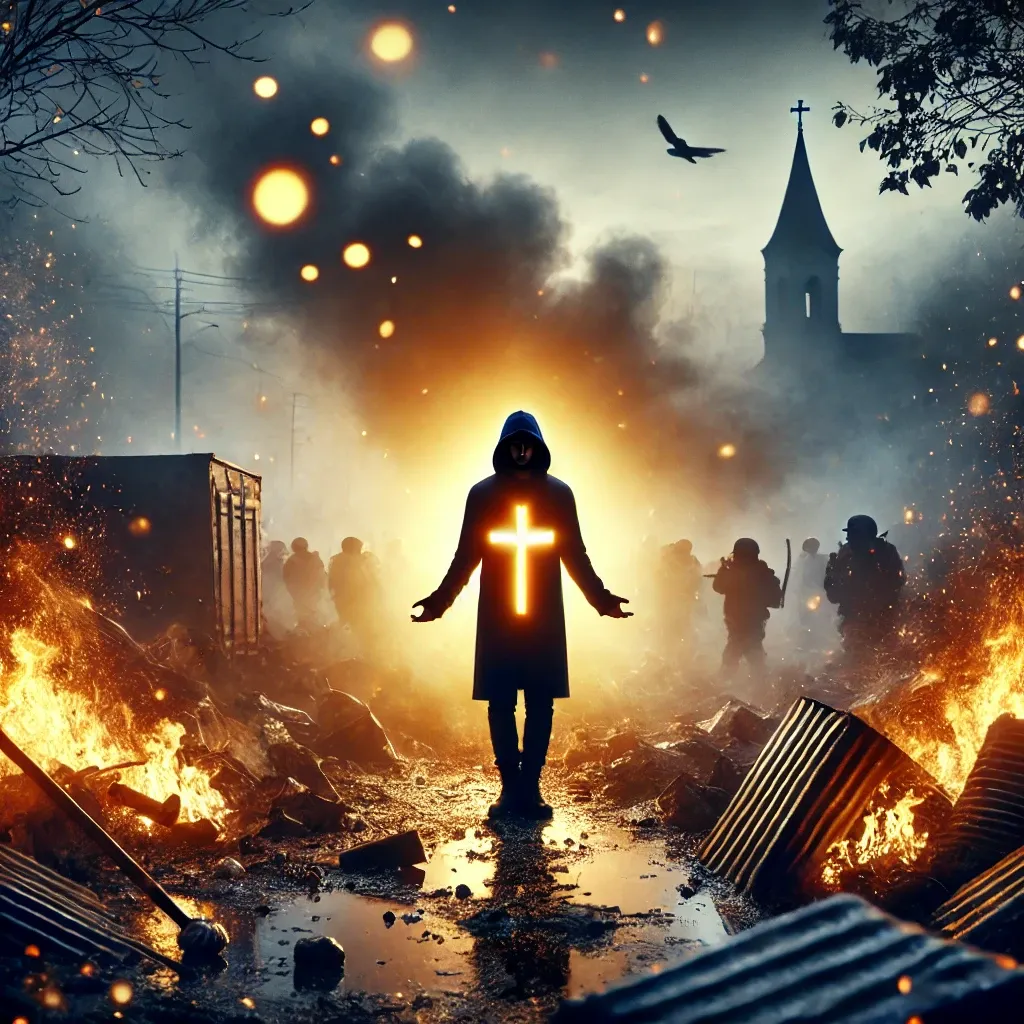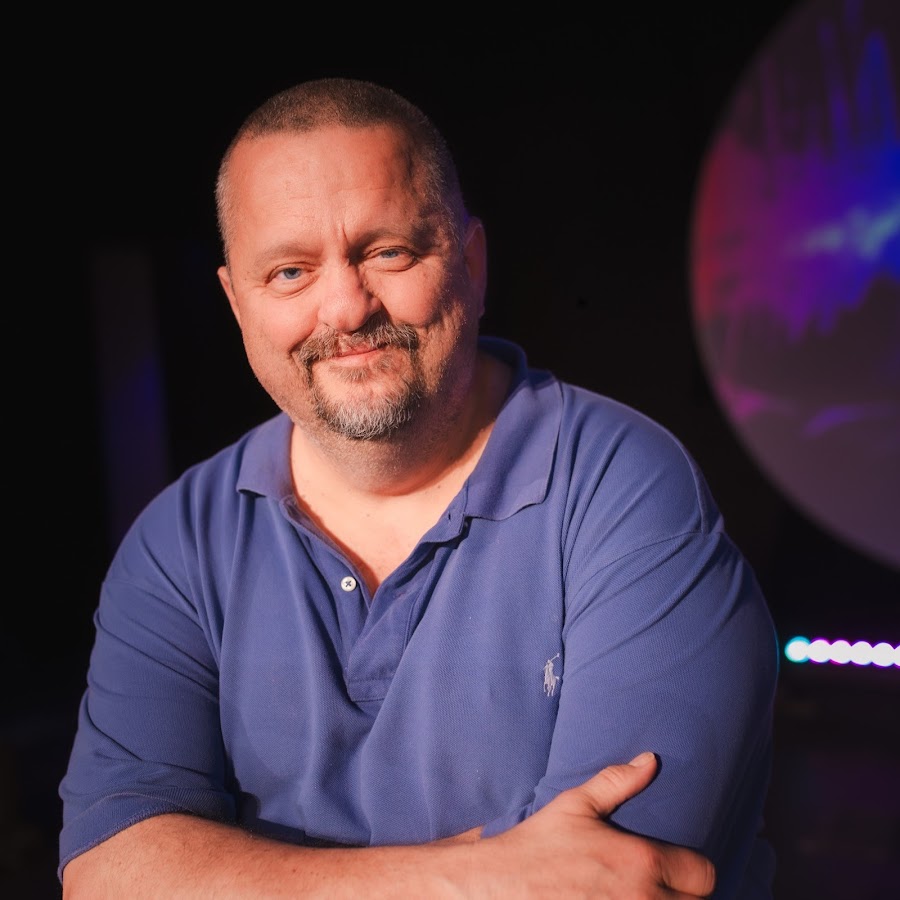

By Dr. Tim Orr
For a couple of years, my Sunday routine had remained the same. I would get up on Sunday morning, pray, and drive to Gary, Indiana, to pick up Erise and her six grandchildren for church. It was a neighborhood that many avoided—a place defined by gangs, drugs, and violence—but I never hesitated. This was my small part of God's greater mission, and it felt as natural as breathing. On each trip, I would arrive at Erise’s house, load the kids into the van, and head off to church without incident. I didn’t see the danger as others did. Gary was a war zone to them and had assumed the mantle of the murder capital of the United States, which required State Troopers for a couple of years to handle the situation. Still, to me, it was just where these precious people lived, and they deserved to hear about God’s love as much as anyone else.
But that routine all changed in an instant. What had once been routine suddenly became terrifying. I had walked Erise’s grandchildren outside, just like I always did, but as we stepped onto the street, I saw two gang members, guns drawn, pointing directly at their rivals on the corner. My heart raced. Without thinking, I rushed the children back inside and called the police. It wasn’t until the officer arrived and asked if I had been the one to make the call that I realized the gravity of what I had done. I had just made myself a target in a neighborhood where the code of silence reigns. For the first time in years, doubt crept in. Was I risking my life for this? Was it worth it?
The call from Buddy a few days later confirmed my worst fears. "Word is out that there is a hit on you," he said cautiously. The gang was looking for me, blaming me for the arrests that followed. The message was clear: I was now a marked man. Until then, I had never questioned why I was doing this. But suddenly, everything I’d worked for felt fragile. Was I willing to risk my life to keep doing this?
Wrestling with Fear and Doubt
As I sat in my car the following Sunday morning, gripping the steering wheel, my mind raced with questions. The past week's events played repeatedly like a haunting loop I couldn’t escape. Fear gripped me, not just for myself but for the people I had committed to serving, especially the children. What if this was it? What if this was the day they made good on their threat to "take me out"? Would anyone even care?
I prayed, desperately searching for clarity. The truth was Gary, Indiana, felt like a place forgotten by the world—a city riddled with violence, poverty, and broken dreams. People avoided it and locked their doors as they passed by on the highway. But here I was, week after week, entering into a war zone with nothing but faith and a desire to help. My church, my friends, even my family—they knew of my trips, but did they truly understand the weight of what I faced? Most people couldn’t imagine it. Yet, in those moments, I questioned myself. Why was I doing this? Was it worth risking my life?
The memory of that Wednesday call from Buddy still hung over me like a dark cloud. His voice was cautious but direct: “They want you dead. Be careful.” Those words hit like a punch to the gut. I didn’t want to be a martyr. I wasn’t trying to prove anything to anyone. All I wanted was to show Erise and her grandchildren that there was a better way of hope. But how could I do that when my very presence was now a threat to my life?
As I prayed in the car that morning, the Spirit spoke to me—not in the way you see in movies or read in books, but in the quiet, insistent way He does when you're most broken. It was like a whisper, a nudge, a gentle but firm reminder: “These people matter to Me.”
That hit me hard. It wasn’t some abstract truth; it was personal. They mattered to Him—Erise, her grandkids, the gang members on the street corner, the entire neighborhood that seemed abandoned by society. They mattered to God. And somehow, in the middle of all this chaos, He had sent me, an imperfect servant, to remind them of that.
I thought of Jesus and the children. It’s easy to picture the scene—parents anxiously pushing their kids forward, hoping to get close to the man everyone was talking about. But the disciples, thinking they were helping, tried to keep the children away. And yet, in one of the most profound moments of His ministry, Jesus rebuked them: “Let the children come to me; do not hinder them.”
At that moment, I felt like one of the disciples—standing in the way, doubting the value of what I was doing. But Jesus’ words weren’t just for His disciples back then; they were for me now. He wasn’t just talking about children. He was talking about everyone society dismisses, everyone the world deems unworthy. And here I was, doubting whether these precious souls were worth the risk.
God didn’t need me to be a hero; He required me to be faithful. He wasn’t asking me to save the world, just to be present in the lives of those who needed Him most. And at that moment, I realized it wasn’t about me. It never was. It was about showing up for those who felt invisible, forgotten, and unloved.
Support Tim on Patreon!
Rediscovering My Purpose
As I drove toward Erise’s house, the weight on my shoulders lifted just a bit. I still had fear, but I also had clarity. I understood that ministry wasn’t always about grand gestures or visible results. Sometimes, it was simply about being there—about showing up weekly for the people who mattered to God, even if they didn’t seem to matter to anyone else.
When I arrived, Erise stood with her six grandchildren, all waiting for me, just as they always did. I smiled as I opened the door to the van, and the kids piled in, chatting excitedly about the church event we were headed to. There was no sign of fear on their faces, no hint of the danger that loomed in the neighborhood around them. They trusted me. They trusted that I would show up for them. And in that moment, I knew that God had called me to do exactly that.
As I drove through Gary's streets, I couldn’t help but feel the tension in the air, but I also felt something stronger—a sense of purpose. I wasn’t driving through those streets as someone who saw them as a lost cause. I was driving as someone who saw them as children of God, people who were loved, no matter how broken their circumstances.
The gang members might still be out there, given that this was nearly 30 years ago. The threats are no longer real, but I realized something deeper that day. The world measures success in results, in visible change, but God measures it in faithfulness. As long as I was faithful in showing love and care, I did exactly what God had called me to do.
That Sunday, as I watched the children laugh and play at the church event, I realized just how powerful it was to be present. It didn’t matter that the world saw them as “just kids” from a dangerous part of town. They were precious to God, and because of that, they were precious to me. And so, no matter the risks, I would keep showing up. Because sometimes, that’s what ministry is: showing up when no one else will, believing that even in the darkest places, the light of God’s love can shine through.
Tim Orr is a scholar, Evangelical minister, conference speaker, and interfaith consultant with over 30 years of experience in cross-cultural ministry. He holds six degrees, including a master’s in Islamic studies from the Islamic College in London. Tim taught Religious Studies for 15 years at Indiana University Columbus and is now a Congregations and Polarization Project research associate at the Center for the Study of Religion and American Culture at Indiana University Indianapolis. He has spoken at universities, including Oxford University, the University of Tehran, and mosques throughout the U.K. His research focuses on American Evangelicalism, Islamic antisemitism, and Islamic feminism, and he has published widely, including articles in Islamic peer-reviewed journals and three books.
 YouTube
YouTube
Sign up for Dr. Tim Orr's Blog
Dr. Tim Orr isn't just your average academic—he's a passionate advocate for interreligious dialogue, a seasoned academic, and an ordained Evangelical minister with a unique vision.
No spam. Unsubscribe anytime.
